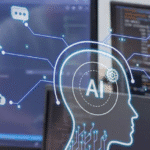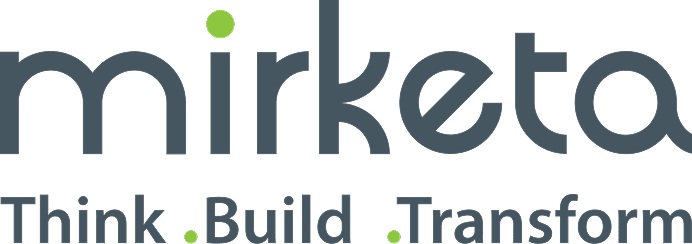AI in Healthcare: A Revolution in Diagnosis and Personalized Treatment
Author
November 15, 2023
Artificial Intelligence (AI) is revolutionizing the healthcare industry, driving improvements in diagnosis, treatment, and patient outcomes. From remote patient monitoring to customized treatment plans, AI enables healthcare providers to deliver precise and effective care. Let’s delve into how AI is transforming the healthcare landscape.
The Rise of AI in Healthcare
AI’s ability to process and analyze vast amounts of healthcare data—ranging from patient records to genomic data—has made it indispensable. Technologies like Salesforce Analytics Cloud are pivotal in processing and visualizing this data, empowering healthcare professionals to make data-driven decisions.
Key Transformations in Healthcare with AI
1. Diagnosis and Early Detection
- AI excels in analyzing patient data, such as medical histories and diagnostic images, improving accuracy in early disease detection.
- For example, AI systems can identify cancers in mammograms at early stages, boosting survival rates.
2. Accelerated Drug Discovery
- AI streamlines drug development by predicting the effectiveness of potential drug candidates, reducing both time and costs.
- Machine learning tools assist in analyzing patterns, making drug discovery faster and more efficient.
3. Remote Patient Monitoring
- Wearable devices collect real-time data on vital signs. AI tools integrated with Salesforce IoT process this data, providing early alerts to healthcare providers.
4. Customized Treatment Plans
- AI-driven solutions create personalized treatment strategies based on genetic and molecular data.
- This precision medicine approach maximizes treatment efficacy and minimizes side effects.
5. Enhancing Surgeries with AI
- Robotic surgical systems powered by AI offer exceptional precision, reducing risks and improving recovery times.
6. Predictive Analytics for Public Health
- By analyzing data from diverse sources, AI predicts disease outbreaks and assists in planning resources effectively.
7. Virtual Health Assistants and Mental Health Support
- Chatbots and virtual assistants integrated with platforms like Salesforce Service Cloud streamline patient communication and provide mental health support.
Challenges and Ethical Considerations
Despite its benefits, AI poses challenges, including:
- Algorithmic Bias: Ensuring fairness and minimizing biases in AI tools.
- Data Privacy: Protecting sensitive patient information.
- Collaboration between healthcare providers and AI developers is critical to address these concerns.
Balancing AI with the Human Touch
AI enhances efficiency but cannot replace human empathy and judgment in healthcare. Solutions like Salesforce Consulting Services ensure the seamless integration of AI while preserving the essential human element.
Conclusion
AI is transforming healthcare with predictive analytics, remote patient monitoring, and customized treatment plans. Its integration must remain ethical and transparent, balancing innovation with the human touch to improve patient outcomes.
Recent Posts
-
 Salesforce API Testing – The Modern QA Approach for Reliable Integrations05 Jan 2026 Blog
Salesforce API Testing – The Modern QA Approach for Reliable Integrations05 Jan 2026 Blog -
 Transforming SMB Sales with Salesforce Commerce Cloud12 Nov 2025 Blog
Transforming SMB Sales with Salesforce Commerce Cloud12 Nov 2025 Blog -
 Generative AI Testing tools03 Nov 2025 Blog
Generative AI Testing tools03 Nov 2025 Blog -
 Mirketa Unveils Next-Gen AI Solutions to Redefine the Future of Work Across Industries29 Jul 2025 Press Release
Mirketa Unveils Next-Gen AI Solutions to Redefine the Future of Work Across Industries29 Jul 2025 Press Release -
 Salesforce Implementation School Universities Higher Education23 Jul 2025 Blog
Salesforce Implementation School Universities Higher Education23 Jul 2025 Blog -
 Salesforce Health Cloud Implementation Partner: A Complete Guide23 Jul 2025 Blog
Salesforce Health Cloud Implementation Partner: A Complete Guide23 Jul 2025 Blog -
 XML Parsing: Using MINIDOM Vs Element Tree (etree) in Python02 Jul 2025 Blog
XML Parsing: Using MINIDOM Vs Element Tree (etree) in Python02 Jul 2025 Blog -
 A step by step Guide to create Salesforce web-to-lead form30 Jun 2025 Blog
A step by step Guide to create Salesforce web-to-lead form30 Jun 2025 Blog -
 How AI is Transforming User Experience Design in 202526 Jun 2025 Blog
How AI is Transforming User Experience Design in 202526 Jun 2025 Blog -
 How a Salesforce NPSP Consultant Can Elevate Nonprofit Impact25 Jun 2025 Blog
How a Salesforce NPSP Consultant Can Elevate Nonprofit Impact25 Jun 2025 Blog
















